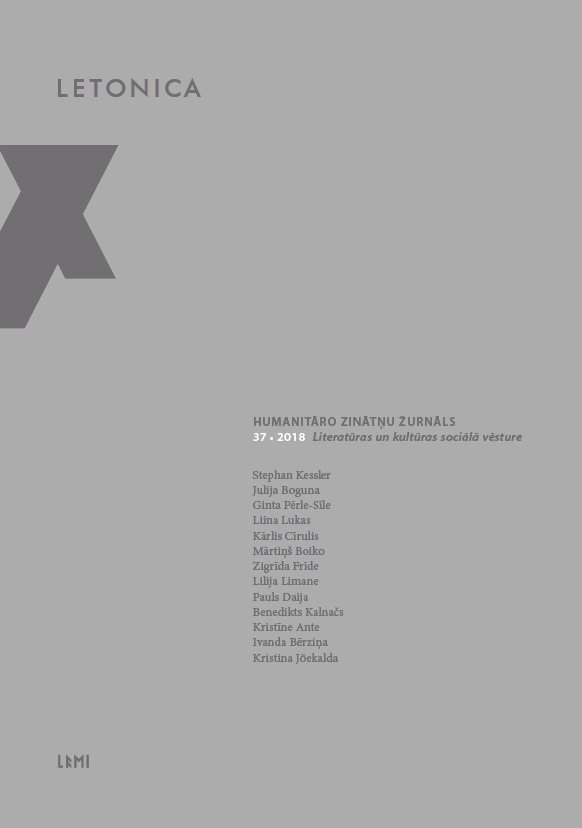19. gadsimta stāstniecības žanra attīstība latviskās identitātes meklējumu ceļos
The Development of the Narrative Genre in the 19th Century in Quest for Latvian Identity
Author(s): Zigrīda FrīdeSubject(s): History, Cultural history, Fiction, Baltic Languages, Translation Studies
Published by: Latvijas Universitātes Literatūras, folkloras un mākslas institūts
Keywords: the 19th century Latvian prose; language; national identity; story; national awakening
Summary/Abstract: In Latvian literature the development of the narrative genre to a great extent has been based on translations and literary traditions of other nations. The first original stories that played a crucial role in further processes along with educated and nationally patriotic authors’ publications in the 1860s initiated the flourishing of prose, strengthened further development of Latvian literary activities, its encouraging stance in the questions related to the development of literary language, as well as wisdom of life and national space. These stories facilitated the processes of nation building n Latvia. Along with the 1863 published works of Juris Neikens, Krišjānis Barons and Jēkabs Zvaigznīte, as well as Atis Kronvalds, an in-depth portrayal of Latvian identity entered literature. It was manifested through the creativity of the author and the use of Latvian language enriched by the vocabulary from various districts, as well as the portrayal of rural life, which to most of the readers at the time depicted their everyday surroundings and activities. The plots of the authors were based on domestic observations, which were documented in a rather authentic and close-to-reality way, intuitively implementing the so-called principles of mimesis, which provided a new mode of narrative based on the national peculiarities in the prose of the time. Although in the early stages of the development, Latvian fiction did not reveal in depth reflections of the author’s personal experiences, the lack of this creative expression was replaced by objective, even ethnographic observations of the everyday life. In the upcoming decades, such a fusion of characters and plots borrowed from people (folk) and the personal train of thought and talent of the author, which has been enriched with the world classics and modern literature, established a basis for the narrative genre to compose artistically individualised and subjective writings epitomizing Latvian identity. In the 19th century, when from the ethnic communities in the districts Latvian nation was developing and consolidating as a self-dependent subject with a national awareness, literature, myths and future hopes, Young Latvians and the following writers with their encouraging attitude towards the development of literary language, wisdom of life and national space facilitated the formation of national identity.
Journal: Letonica
- Issue Year: 2018
- Issue No: 37
- Page Range: 109-118
- Page Count: 10
- Language: Latvian

